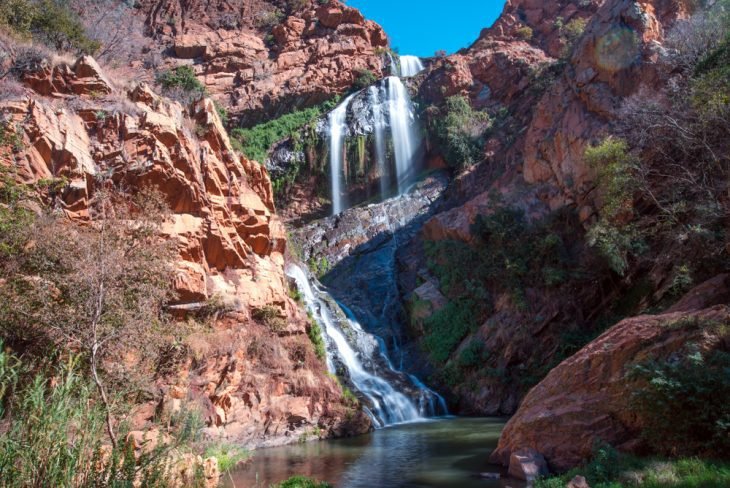Unknown Facts About Johannesburg North Attractions
Unknown Facts About Johannesburg North Attractions
Blog Article
Some Ideas on Johannesburg North Attractions You Need To Know
Table of ContentsWhat Does Johannesburg North Attractions Mean?The smart Trick of Johannesburg North Attractions That Nobody is Talking AboutJohannesburg North Attractions - TruthsNot known Facts About Johannesburg North AttractionsSome Of Johannesburg North AttractionsNot known Details About Johannesburg North Attractions 8 Easy Facts About Johannesburg North Attractions Shown
You ought to maintain safety in mind and travelers need to remain sharp at all times when in unknown surroundings. Talk to the locals when you are in town to find out concerning the location you are remaining in. Johannesburg North attractions. When on the road (this does not use to shopping center and other safe and secure environments) finest basic advice is to attempt your ideal to resemble a local and to stay clear of displaying any type of kind of wealth
Some Known Details About Johannesburg North Attractions
Professor Revil Mason O. J. (Thomson, 1946) discovered the Witwatersrand's pre-colonial history. His historical work blew up the 'em pty land' myth, according to which the region was devoid of human habitation prior to the arrival of European settlers. In his magazines Prehistory of the Transvaal: A Record of Human Activity (1962) and Origins of Black People of Johannesburg and the Southern Western Central Transvaal AD 3501880 (1986 ), Teacher Mason demonstrated the level of social and financial advancement in the location prior to Europeans set foot below.

Facts About Johannesburg North Attractions Uncovered
He showed the federal government's approval, given after he had vowed to maintain his discoveries secret. In 1874, small mining procedures were begun in the Magaliesberg, where an Australian, Henry Lewis, had actually found gold deposits. In 1878, David Wardrop located gold in quartz capillaries at Zwartkop, north of Krugersdorp. In 1881, Stephanus Minnaar stumbled upon gold on the ranch Kromdraai, near the Cradle of Humankind.
In March 1886, a protrusion (quickly to be called the Main Reef) was located, quite fortunately, on Gerhardus Oosthuizen's farm Langlaagte. Some state that the Lancastrian coal miner George Pedestrian discovered this reef. One more travelling English miner, George Harrison (that had formerly functioned in Australian mines) obtained a prospecting permit in respect of Langlaagte in May 1886.
He chose to proceed in a quest for greener fields, and disposed of his Langlaagte insurance claim for the princely amount of 10. Alas: below lay the richest goldfield ever before discovered. The exploration of this abundant auriferous coral reef prompted a gold thrill that signified completion of bucolic serenity in the southern Transvaal.
It would, within 6 years, end up being the biggest town in southern Africa. Within a decade, it would certainly make the Z. A. R. till then an anarchical and bankrupt little state the wealthiest country in Africa. By the millenium, the Z. A. R. was to surpass Russia, Australia and the United States of America to become the globe's leading gold manufacturer, producing greater than a quarter of the globe's gold.
Some Known Details About Johannesburg North Attractions
It was understood as Ferreira's Camp, named after Colonel Ignatius Ferreira. He was a Boer traveler upon whom the British authorities had actually presented the condition of Friend of the Many Identified Order of St Michael and St George (entitling him to the post-nominal letters C. M. G.) in gratitude for his role in the battle that had actually deposed the Pedi king Sekhukhune in 1879.
Quickly the camp was description including outdoors tents and wagons as novices arrived daily from far and wide. By September 1886, some 400 individuals stayed in Ferreira's Camp, which quickly flaunted built iron and hardwood structures. Two other camps were established: Meyer's Camp on the farm Doornfontein, and Paarl Camp. The latter was nicknamed Afrikander Camp; lots of people from the Cape Swarm worked out there.

Excitement About Johannesburg North Attractions
This name acquired money by word of mouth, such that the State Secretary affirmed the name to the Mining Commissioner on 9 October 1886. Stands in the town were auctioned on 8 December 1886. While some stands have a peek at this site were cost 10, others were knocked down for just sixpence.
Two years later on, these erven were to alter hands for as high as 750 each. The tented camps decreased as a dorp of corrugated iron buildings developed and increased north of the mines situated along the Key Coral Reef Road. Locations such as Jeppe's Town (where working-class immigrants erected their houses) and Doornfontein (where the upscale new 'Randlords' started to create their opulent homes) were quickly contributed to the ever-expanding map of the town.
The 5-Second Trick For Johannesburg North Attractions
Apart from the street names, there were no indicators of Johannesburg being situated in a Dutch-speaking country., Check This Out almost everybody spoke English and even the Government slaves resolved one in English, unless they were first attended to in the Taal (or Reduced Dutch)'.
Britain had a rate of interest in ensuring ideal conditions for gold manufacturing on the Witwatersrand, and that the gold was exported to London instead than Berlin an important made all the extra clamant by the Z. A. R.'s raising toenadering with Germany. Mine owners got on a clash with Head of state Kruger, whose policy of monopolistic giving ins (frequently provided to his cronies) avoided mining firms from obtaining products of materials (specifically dynamite) and labour by themselves, less costly terms
The 5-Minute Rule for Johannesburg North Attractions
In 1890, the Volksraad had restricted the franchise to white males who had actually stayed in the Z. A. R. for fourteen years or longer, therefore disqualifying many of the immigrants (that occurred to be the major contributors to the fiscus). Anxiety for the vote was a simple pretext for advertising a various agenda; the majority of uitlanders concerned themselves as momentary visitors and had no objective of continuing to be in the Z.
Report this page